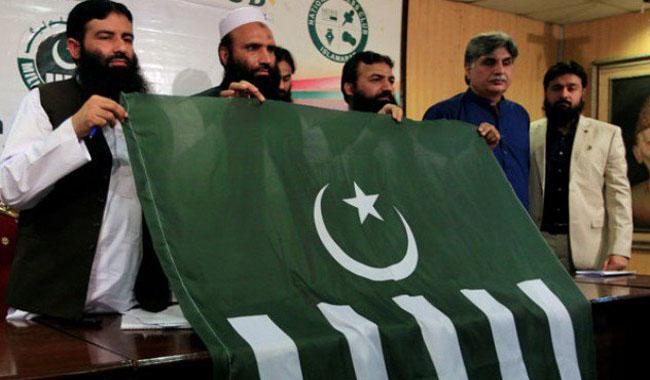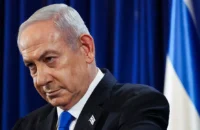by Khaled Ahmed
It is now certain — unless Pakistan’s powers-that-be intervene — that the process of “mainstreaming” or deradicalising of Pakistan’s proxy warriors recommended by retired military officers figuring on TV talkshows has been shipwrecked. The Foreign Office under PMLN foreign minister Khawaja Muhammad Asif has decided that Hafiz Saeed’s Milli Muslim League (MML) should not have taken part in the NA-120 by-polls bagging 5,822 votes and beating at least one mainstream party, the Pakistan Peoples’ Party.
The Foreign Office has followed up on the letter of the Interior Ministry under PMLN Minister Ahsan Iqbal in answer to the query sent by the Election Commission of Pakistan on whether the MML should be allowed to take part in the by-election. The Interior Ministry said: “There is evidence to substantiate that the Lashkar-e-Tayba (LeT), the Jamaat ud Dawa and Falah-e-Insaniat Foundation (FIF) are affiliates and ideologically of the same hue, and [therefore] the registration of the MML is not supported”.
This was new in Pakistan. The line to take heretofore was that Lashkar-e-Tayba had miraculously metamorphosed into Jamaat ud Dawa that only did education and charity work. This was accepted by Pakistan’s judiciary and no one could hint otherwise without being reprimanded or threatened. Hafiz Saeed and his “charity” organisations including hundreds of schools and colleges are the prime example of “mainstreaming” of an outlawed organisation by Pakistan. Its negative fallout was also endured, like the running of private courts under “Islamic law”.
What has been highlighted by a lame-duck PMLN government is the negative consequence of what is called “mainstreaming”: Instead of de-radicalising the declared terrorists the process further radicalises society and undermines the power of the state.
It was said on TV talkshows that PM Sharif had heard of mainstreaming and had even received a proposal but sat on it till he was kicked out of office. His fear was genuine. But why did he balk at mainstreaming whenhe had allowed it in Punjab to the banned Sipah-e-Sahaba? It appears he had decided to take a stand because appeasement had not yielded good results: Mainstreaming simply allowed more space to the offender.
But his rump party, still ruling, wanted to retain the populist tinge of anti-Americanism as it bucked the jihadi state. Pakistan’s “consensual” foreign policy response to President Donald Trump’s critique of its terrorist “safe havens” is based on the presumption of a “fatal foreign policy blunder” — that of joining America’s war against terrorism. When General Zia joined the “deniable” war against the Soviet invasion of Afghanistan, no one thought it was a blunder. When America went to the UN on the issue, it found India missing. That was enough for Pakistan: India was left out of the most powerful consensus against the existence of the Soviet Union.
The general-president in Islamabad got the free space to push forward Pakistan’s “nuclear programme” that had become the central point of its India-centric nationalism. From Pakistan’s control of the anti-Soviet covert war in Afghanistan sprang the covert jihad of Kashmir. It was not a “blunder” to have joined “America’s war”; it was a boon. No one but Pakistan is to blame.
Least of all America, on whose money Pakistan got back the equilibrium it had lost by overturning democracy and killing an elected prime minister. The non-state actors have returned from Pakistan’s covert war to trouble a state that has lost its writ to their localised tyranny. It “mainstreamed” Sipah-e-Sahaba by renaming it Ahle Sunnat wal Jamaat in South Punjab and let ex-ISI chief Hamid Gul “mainstream” the rest through the Defence of Pakistan Council now in the control of a “charity” warlord on the UN’s list of wanted terrorists.
The writer is consulting editor, ‘Newsweek’ Pakistan



























